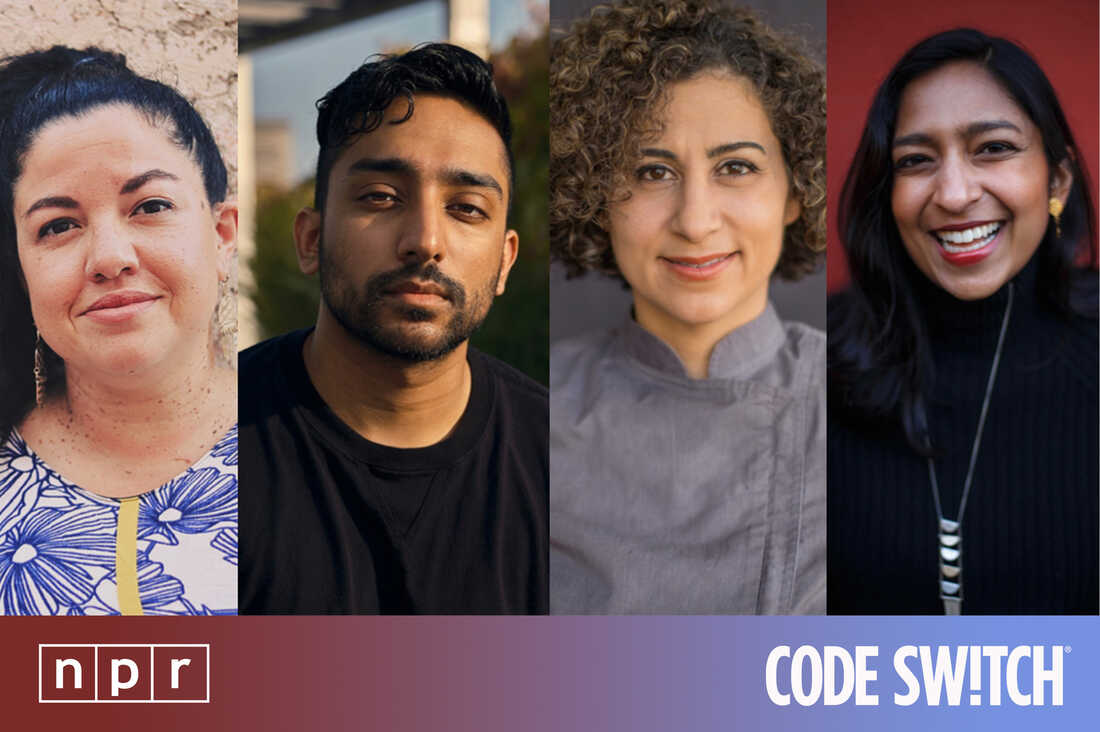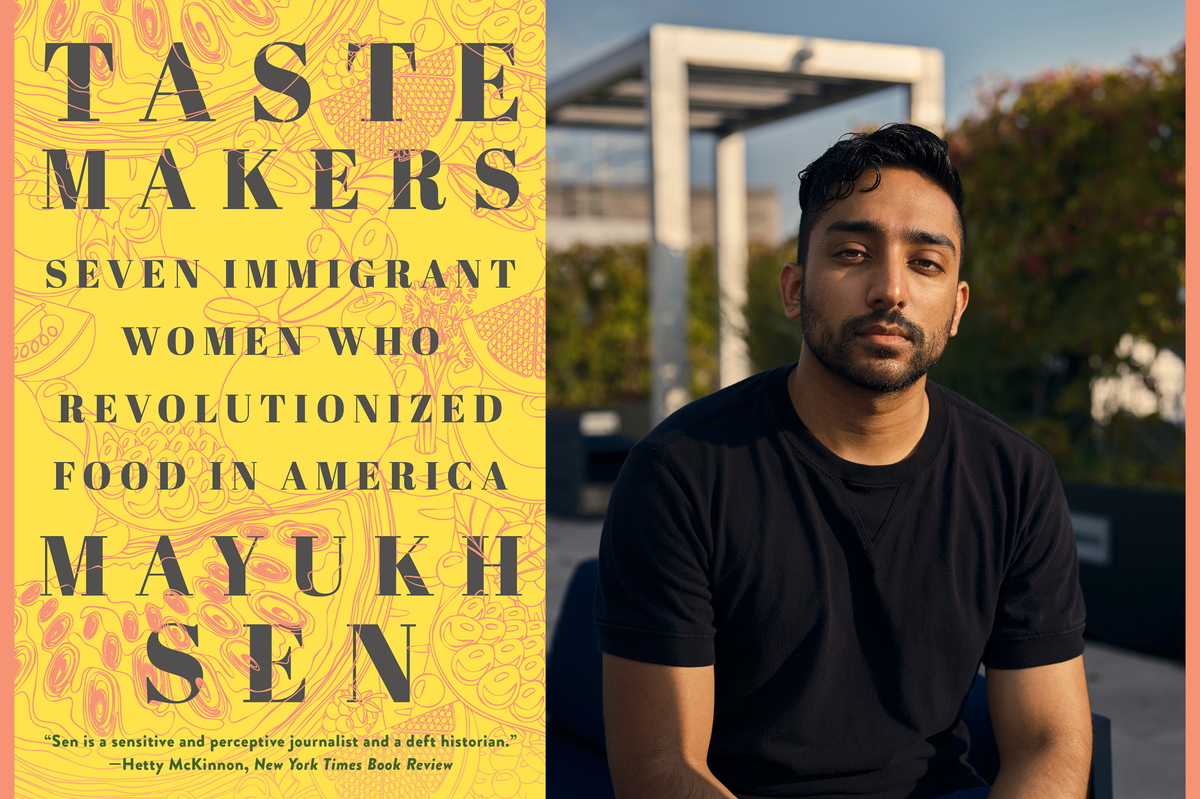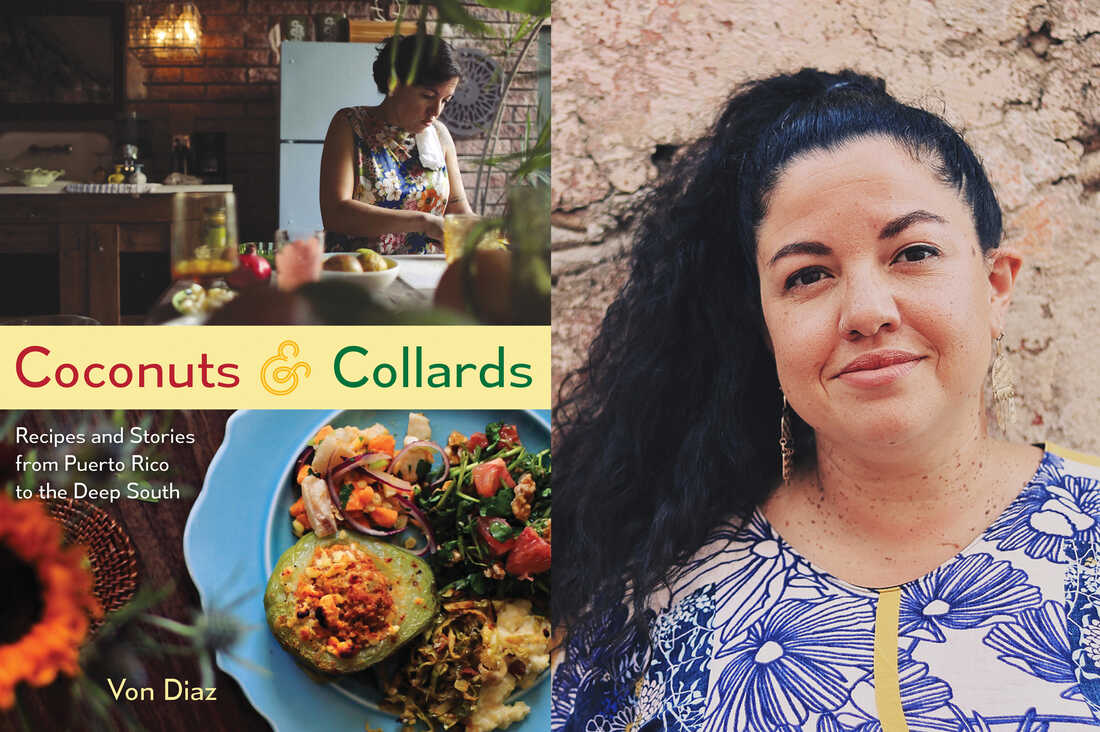

Chefs Von Diaz, Mayukh Sen, Reem Assil and Priya Krishna.
NPR
For this week’s episode, we talked to a food historian and three cookbook authors about the influence cooks who are people of color — especially women— have on what and how we eat today.


Mayukh Sen and his book Taste Makers: Seven Immigrant Women who Revolutionized Food in America
W. W. Norton
Mayukh Sen is the author of Taste Makers: Seven Immigrant Women Who Revolutionized Food in America. His book profiles women whose work has gifted us with a more global palate. They banged on doors that had been firmly shut to women and immigrant cooks, and managed to pull them open so others might follow. Love stir-fries? Thank Chao Yang Buwei. Think spaghetti is the be-all and end-all? Marcella Hazan has news for you. These women are not household names for many Americans, Mayukh, a James Beard Award winner, told us. “They had to come to this country and navigate a very heavily gate-kept American Food establishment just to have their voices heard, just to publish their own cookbooks, just to open their own restaurants. And those sorts of challenges are part of the story of American food.”


Priya Krishna and her book Indian-Ish: Recipes and Antics from a Modern American Family
Houghton Mifflin Harcourt
New York Times food writer Priya Krishna grew up in Dallas with a mom who watched Julia Child to learn the basics of French cooking after she moved to the United States. When she married and became a mother, Ritu Krishna understood the duality of the pull. “On the one hand, you’re being brought up as Indian kids,” Priya’s mother shared in a NPR video. On the other, Priya and her sisters grew up in America, running around with American schoolmates, with their culture and values. So, like so many families like theirs, the Krishnas embodied a hybrid culture.

Indian-ish
By Priya Krishna, Mackenzie Kelley, Maria Qamar, Padma Lakshmi
Priya insisted that her book, Indian-ish, be subtitled, Recipes and Antics from a Modern American Family, because she says, that’s what her family is. “Indian food is everyday food,” she proclaims and, her Indian version of Rosie The Riveter on the book’s cover encourages people who pick up the book, “You Can Cook It!” The point of Indian-ish is to make food that harkens to Priya’s Indian heritage while also embracing her American side. It’s not one or the other, she told us, “It is a thing unto itself.” So yes, there’s a pizza in her book whose base is not pizza dough but roti, a traditional Indian flatbread. And like her mother, Priya has become enamored of that very American convenience— the Instant Pot—for making dahl.


Von Diaz and her book Coconuts and Collards: Recipes and Stories from Puerto Rico to the Deep South
University Press of Florida
Food journalist Von Diaz was born in Puerto Rico and grew up in Georgia. Her first book, Coconuts and Collards: Recipes and Stories from Puerto Rico to the Deep South, reflects those dual heritages, with their Afro-Indigenous influences. Von also melds the two cuisines with her own modern take: love the idea of picadillo but you’re vegetarian? She offers you the opportunity to replace the dish’s traditional ground beef with tofu. No yucca in your town? Use potatoes. “Food is a living thing, right? It changes,” she insists. And, Von says, we have to change, too, to keep our culinary cultures alive. There’s no one way to be authentic. (By the way, her second book, Islas: A Celebration of Tropical Cooking, will feature recipes from Atlantic islands like her own Puerto Rico to islands in the Indian and Pacific Oceans. It will be published in August.)


Reem Assil and her book Arabiyya: Recipes from the Life of an Arab in Diaspora
Ten Speed Press
Before she was a professional chef, Reem Assil was a community organizer in Oakland, Calif. For her, issues of equity in the food business — for people who work in kitchens, who grow the food that shows up in those kitchens and people in marginalized communities who may be challenged to provide enough healthy, filling food for their families — are as important as what’s on the menu. The bakery she established in Oakland was founded on the Arab ethos of hospitality and welcome. This year she published Arabiyya: Recipes from the Life of an Arab in Diaspora. Her recipes are influenced by her own upbringing in a Syrian-Palestinian household. Reem sees her offerings as more than just something to eat: “Food is the Trojan Horse,” she admits; it’s the thing that allows people with different — and sometimes conflicting — world views to come together and talk things out over a good meal.

Felecia Phillips Ollie DD (h.c.) is the inspiring leader and founder of The Equality Network LLC (TEN). With a background in coaching, travel, and a career in news, Felecia brings a unique perspective to promoting diversity and inclusion. Holding a Bachelor’s Degree in English/Communications, she is passionate about creating a more inclusive future. From graduating from Mississippi Valley State University to leading initiatives like the Washington State Department of Ecology’s Equal Employment Opportunity Program, Felecia is dedicated to making a positive impact. Join her journey on our blog as she shares insights and leads the charge for equity through The Equality Network.




